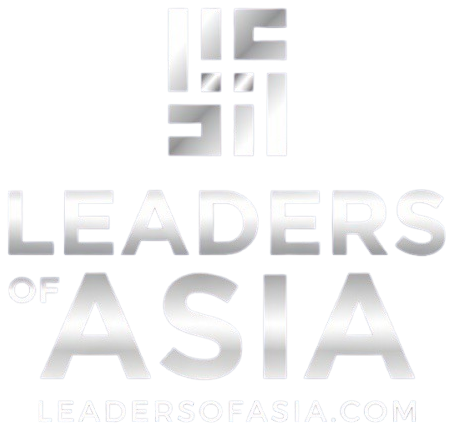Early Life and Education
Salman Iqbal was born on October 27, 1974, in Dubai, United Arab Emirates, into a business-oriented Memon family. He is the nephew of Abdul Razzak Yaqoob, the founder of the ARY Group and one of the earliest Pakistani entrepreneurs to establish successful trade and media ventures in the Middle East. Raised in Dubai, Salman was exposed to a multicultural, entrepreneurial environment from an early age.
His upbringing was marked by a strong sense of community and business responsibility, instilled by his uncle’s example and his family’s values. These early influences helped shape his worldview as one grounded in innovation, service, and leadership. After completing his early education in the UAE, he moved to the United States, where he attended the University of Houston. There, he pursued a degree in business administration, equipping himself with the managerial skills and global exposure that would later support his rise as a media executive.
The combination of family mentorship, international education, and early involvement in business operations gave Salman Iqbal a strong foundation in leadership. These attributes would eventually lead him to take the reins of one of Pakistan’s most influential media empires.
Rise in Media: ARY Digital Network
Salman Iqbal’s media career began under the tutelage of his uncle, who had laid the groundwork for ARY Digital Network as a satellite broadcaster targeting the South Asian diaspora. Following Abdul Razzak Yaqoob’s passing in 2014, Salman stepped up as the President and CEO of the ARY Digital Network, transforming the group into a multidimensional media powerhouse.
Under his leadership, ARY expanded its operations beyond news and entertainment, venturing into film production, religious programming, sports broadcasting, and reality television. Today, ARY Digital broadcasts to over 130 countries, catering to a global audience that includes millions of Pakistani and South Asian viewers.
Salman played a pivotal role in digitalizing ARY’s offerings, modernizing its broadcasting capabilities, and building a brand identity that resonates with Pakistani values while aligning with global standards. He launched several new channels under the ARY umbrella, including ARY Zindagi, ARY Musik, and ARY QTV, targeting diverse audience segments.
One of his most impactful decisions was to bring together content, culture, and commerce—creating synergy between television, digital platforms, and branded entertainment. ARY News, under his direction, has become one of the most watched news channels in Pakistan, known for its wide reach, timely reporting, and bold editorial stance.
ARY Films and Entertainment Contributions
Recognizing the untapped potential of Pakistan’s cinematic landscape, Salman Iqbal ventured into film production with the establishment of ARY Films. His aim was to revive the local film industry by investing in high-quality content, nurturing talent, and creating a viable ecosystem for cinematic arts in Pakistan.
In 2014, Salman inaugurated the ARY Film Awards, Pakistan’s answer to global film recognition platforms. The awards were designed to celebrate artistic excellence, technical innovation, and storytelling in Pakistani cinema. Their inaugural ceremony was a landmark event, setting a new precedent for the entertainment industry.
Through ARY Films, Salman Iqbal gave a platform to young directors, actors, and writers, offering them resources and exposure to reach both national and international audiences. His efforts significantly contributed to the re-emergence of Lollywood as a vibrant industry.
Sports Ventures: Karachi Kings and PSL Influence
In 2015, when the Pakistan Super League (PSL) was launched, Salman Iqbal made headlines by acquiring the Karachi Kings franchise—one of the most high-profile teams in the league. His entry into the sports domain was not just a business move; it reflected his desire to bridge the gap between entertainment and sports in Pakistan.
Under Salman’s ownership, Karachi Kings became a cultural phenomenon. He invested in brand development, merchandising, player scouting, and fan engagement. The franchise attracted top-tier local and international players, turning PSL matches into family-friendly, stadium-filling events.
Salman also made significant investments in cricket infrastructure, training facilities, and grassroots talent development programs. He worked to bring PSL matches to Karachi, boosting local tourism and civic pride. In 2020, Karachi Kings won their maiden PSL title—a crowning achievement for Iqbal’s sports leadership.
Through the PSL, Salman Iqbal helped globalize Pakistani cricket and provided a launchpad for emerging athletes. His vision turned the league into a commercially viable and culturally significant event, similar in spirit to global leagues like the IPL.
Philanthropy and Community Leadership
Salman Iqbal’s leadership extends beyond business and entertainment—he is a committed philanthropist and social advocate. He serves as the President of the World Memon Organization (WMO), an international platform that supports education, health, and economic empowerment for Memon communities around the globe.
Under his tenure, the WMO has funded numerous community welfare projects, scholarship programs, and disaster relief initiatives. Iqbal has used his media influence to amplify the impact of such campaigns, often combining ARY’s media power with on-ground relief work.
During Pakistan’s devastating floods in 2022, he donated over Rs150 million for relief and rehabilitation. His donation covered emergency aid, food distribution, shelter, and rebuilding initiatives. He also mobilized his network to gather global support for Pakistani flood victims.
Salman Iqbal’s philanthropic ethos is grounded in Islamic values of charity and social justice. His charitable efforts often focus on long-term impact—supporting hospitals, orphanages, educational institutions, and women’s empowerment programs.
Recognition and Awards
In recognition of his contributions to media, sports, and community service, Salman Iqbal has received numerous accolades both nationally and internationally. In 2022, he was awarded the Sitara-i-Imtiaz, one of Pakistan’s highest civilian honors, for his outstanding contributions to sports development through the Pakistan Super League.
He has also been featured in the annual list of the 500 Most Influential Muslims—a testament to his influence across the Muslim world in business, media, and philanthropy. His name is often mentioned among South Asia’s most influential media personalities.
Additionally, Iqbal has received awards from media forums, sports federations, and diaspora organizations for his innovation in broadcasting and commitment to corporate social responsibility
Personal Life and Challenges
Salman Iqbal lives between Karachi and Dubai, managing a transnational portfolio of media, sports, and philanthropic ventures. He is married and has children, and often shares moments from his family life on social media—projecting a relatable and grounded public image.
Despite his professional success, Salman Iqbal has faced profound personal loss. In 2022, he lost his daughter, a tragedy that brought an outpouring of sympathy and support from across Pakistan. His public composure and continued dedication to his responsibilities during this time were widely admired.
This blend of personal vulnerability and public strength has shaped Salman’s character as a leader—one who balances empathy with excellence. His resilience in the face of adversity has further solidified his standing as a role model for young entrepreneurs.
Vision, Strategy, and Business Philosophy
At the heart of Salman Iqbal’s success lies a clear and coherent vision: to make Pakistani media globally competitive while remaining rooted in local culture. His leadership philosophy emphasizes innovation, talent development, and community engagement.
Iqbal believes in investing in people—whether it’s young journalists at ARY, emerging actors in ARY Films, or talented cricketers in the Karachi Kings lineup. His enterprises are known for fostering a culture of meritocracy and growth.
He also champions digital transformation. Under his guidance, ARY has embraced online streaming, mobile journalism, and cross-platform content integration. This adaptability has allowed the group to stay relevant in a rapidly evolving media landscape.
Salman’s strategic thinking blends Western business methodologies with South Asian storytelling and community sensibilities—a fusion that defines his unique brand of leadership.
Conclusion
Salman Iqbal’s legacy is still unfolding, but his contributions to Pakistan’s media, sports, and philanthropic sectors are already profound. He has reshaped television broadcasting, reinvigorated cinema, revolutionized sports engagement, and inspired a new generation of business leaders.
His work represents a rare fusion of commercial ambition and civic responsibility. By investing in platforms that entertain, inform, and uplift, he has helped foster a more confident, connected, and creative Pakistan.
Looking ahead, Salman Iqbal’s impact is likely to grow as he continues to explore digital innovation, global media partnerships, and scalable social ventures. Whether it’s through ARY Digital, PSL, or charitable foundations, his influence will continue to shape the cultural, economic, and social narrative of the nation.
In the broader tapestry of Pakistan’s development, Salman Iqbal stands out as a beacon of dynamic leadership—one who understands the power of media to not just reflect society, but to transform it.






